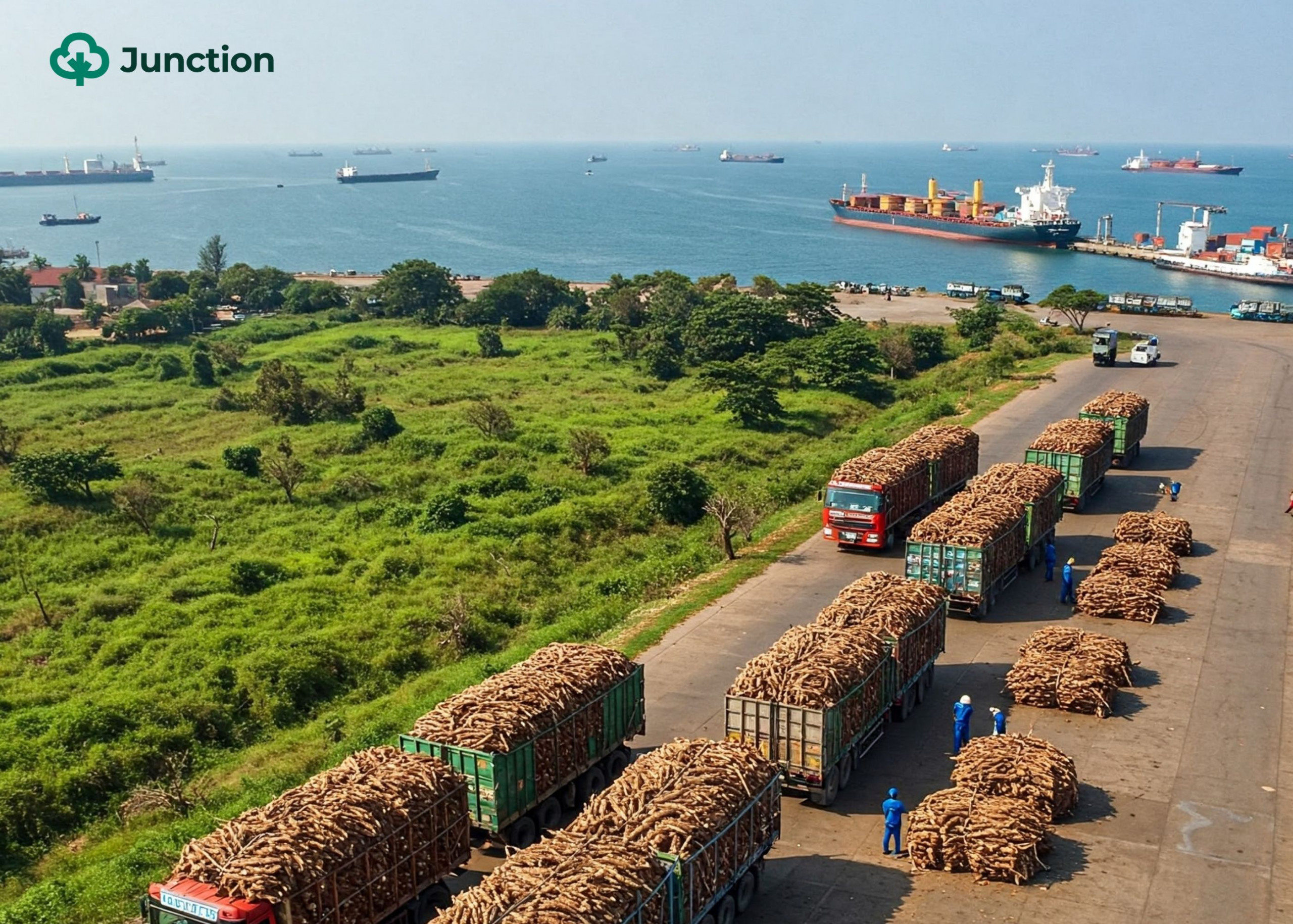News in brief:
– Nigeria is the world’s largest cassava producer, but most of its output is consumed locally, limiting export potential.
– Thailand dominates global cassava exports, earning $1.3 billion in 2023, highlighting Nigeria’s need to scale production for international trade.
Nigeria produced the most cassava in 2023, according to Food and Agriculture Organization (FAO) figures. The sub-Saharan nation accounted for over 20% (62.69 million tonnes) of the world’s top 20 producers.
However, despite its production capability, Thailand ships more cassava annually. The OEC Foundation reported that Thailand exported $1.3 billion of the commodity in 2023.
One of Nigeria’s major trading partners, China, is the world’s largest importer. Other lucrative markets for the produce include Thailand, Vietnam, the United States, and the Netherlands.
Analysts suggest that Nigeria’s cassava export challenge is caused by local demand matching production. It serves as a staple food for millions of Nigerians, with various traditional dishes made from its derivatives, such as garri, fufu, and tapioca.
The versatility of cassava has made it a vital part of Nigerian diets, providing a reliable and affordable carbohydrate source for households across urban and rural areas.
Beyond household consumption, cassava can play a significant role in Nigeria’s food and industrial sectors. Cassava flour can be used as an alternative to wheat flour in baking, supporting food security and reducing dependence on imported grains. Cassava starch is a crucial ingredient in industries such as pharmaceuticals, textiles, and adhesives, while high-quality cassava flour (HQCF) is promoted for bread production.
With an international trade value of $3.48 billion, Nigeria can use its geographical advantage to increase export earnings by simply ramping up the production of cassava.
The Nigerian government and private sector have been investing in cassava value chain development to boost production and processing efficiency. There is still more work to be done to go from feeding the nation to exporting in large quantities.



